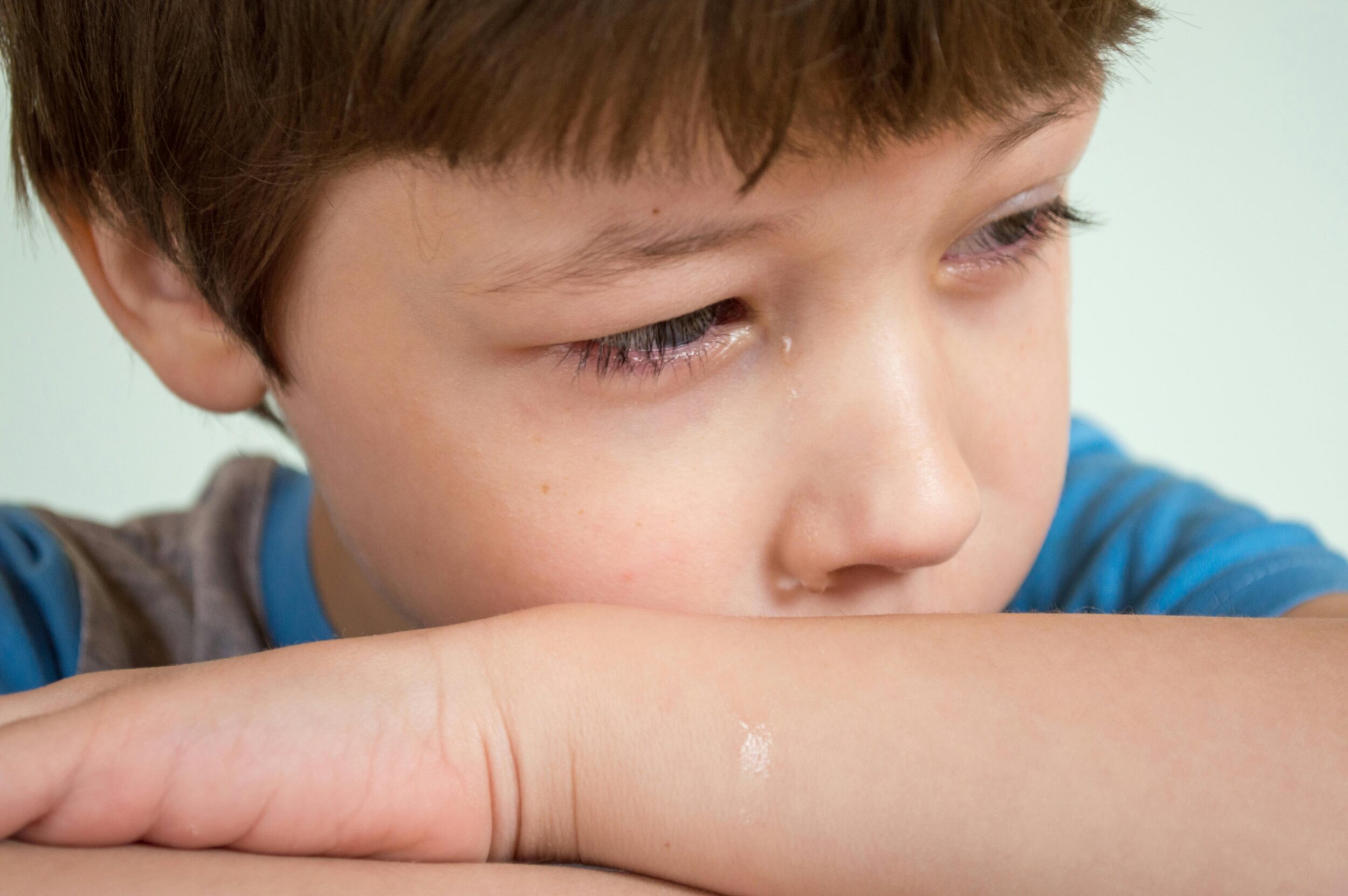Despite the influence of classmates and heavy societal expectations, how can we help boys accept being sensitive and vulnerable and move toward peaceful masculinity? Would kids today, more than before, find it easier to show their vulnerability, thanks to a supportive environment? We would be tempted to think so, but the reality is not so simple. “ It seems to me that there is an evolution », notes Aurélia Blanc, journalist and author of numerous books including You will be a man – feminist – my son! (Marabout) recently updated and enriched. “ This needs to be clarified, because it does not concern all children of all social strata, but it seems to me that for at least a decade now more importance has been given to the expression, management of emotions and educational needs of children. »
A more favorable environment?
“ We see this in parenting practices, with a growing interest in everything related to positive or caring parenting. » he adds. “ On a social level, the issue of managing empathy is slowly starting to reach the school environment as well. In this social movement we begin to understand that it is in the best interests of children, and in this case young people, to let them express their emotions and their vulnerability. »
Arthur Vuattoux is a sociologist and research associate at the National Institute for Youth and Popular Education (INJEP). He also co-wrote the book Masculinity (E/P/A), a reflection on the different ways of expressing one’s masculinity. “ The sociology of emotions or the construction of loving feelings is still a continent to be explored, but recent research conducted on children – even if it does not yet allow us to measure historical transformations – shows a diversity of relationships with feelings, for example with lovers or emotions in children. »
Sociologist Kevin Diter shows for example that children’s relationship with emotions depends partly on interactions – for example within kindergarten through gender socialization – but also on the gender relations embodied by their parents. Socialization towards the feeling of love, for example, or more generally sensitivity to emotional relationships (friendships, enmities, etc.) are linked to whether or not one can talk about one’s feelings within the family. The production of infantile feelings also depends largely on social class : talking about love or emotional relationships with your children, and above all doing so also with boys – the norm having been, and still largely is, speaking about feelings or emotions to girls, and much less to boys – is a social practice favored classes.
Arthur Vuattoux
How to help children value their feelings?
If social origin therefore seems to have a significant importance in the way in which children accept, or not, to reveal their feelings, can we overcome this situation and help them no longer be afraid of being vulnerable? Particularly in the school context.
For Arthur Vuattoux, the issue is not so much helping them to value feelings, but creating an atmosphere in the classroom that makes the expression of these feelings possible. “ For example, based on an education in emotional life which, from the earliest years, underlines the importance of giving a name to one’s emotions, one’s feelings, and taking into account the words and desires of others. This requires an ambitious agenda for emotional and sexual life education, in any case more than is observed today. But families must also be supported: It is difficult to evaluate one’s feelings or emotions in contexts of abuseand we know that child protection is now a largely underfunded public policy, even as the scale of identified difficulties, such as sexual violence in families, appears to be increasing.. »
Aurélia Blanc also focuses her work on promoting emotions on the family unit. “ Children must be taught to identify their feelings in different moments and situations of their lives. This is what allows us to gradually provide a compass, or even a wake-up call, even in group situations where we don’t feel comfortable, where a form of pressure is felt. You have to learn to put words, for example you can do an emotional weather ritual every day as a family.. They learn to trust what they hear, it’s important. »
“ There is also in-depth work to be done from early childhood on issues relating to stereotypes related to masculinity and virilist injunctions. There are very strong images transmitted by adults and children, about the fact that boys and men should not cry, that they are stronger, more tenacious, even on an emotional level. We need to provide other models, questioning and deconstructing these representations together with children.. »
Aurelia White
Make boys men at peace with their sensitivity
Will these tips be enough to prevent kids from falling into toxic masculinity later in life? “ Working on vulnerabilities and emotions is not enough, it is part of a broader movement of questioning traditional virile masculinity » replies Aurélia Blanc.
“ The American Psychological Association produced a manual in 2018 so that professionals can better support boys and men in terms of mental health. They recall in the introduction that, according to research, traditional masculinity is marked by stoicism. Men do not indulge in their emotions of vulnerability, there is competitiveness, dominance, generally harmful to those who are educated and socialized this way. We can deduce this quite logically granting kids the right to vulnerability is not shameful and does not make them inferior individuals. It is ultimately a way to fight against a toxic form of masculinity. »
Aurelia White
Arthur Vuattoux does not prefer to use the term “toxic masculinity”. “ This tends to pathologize what is actually the product of social relationships and lifelong learning. : masculinity that leads to violence, towards women, or other men, rightly considered “too” sensitive – has its roots in childhood, but many other elements or moments of life can forge problematic behaviors, from school bullying to homophobic, transphobic or sexist violence. »
“ Changing masculinities will undoubtedly involve efforts at multiple levels: education on equality and emotional relationships, but also adult education and overall transformation of society through equality at work, gender representations, etc. Undoubtedly, on an individual level, there is no miracle recipe in the personal development model that allows the development of positive masculinity… »
Arthur Vuattoux
“ I like to remind people that in our society it is better to be a dead man than a weak man, that says a lot.” concludes Aurélia Blanc. “We prefer alive, healthy men and guys who feel good about themselves! »
Add Madmoizelle to your favorites on Google News so you don’t miss any of our articles!
Source: Madmoizelle
Mary Crossley is an author at “The Fashion Vibes”. She is a seasoned journalist who is dedicated to delivering the latest news to her readers. With a keen sense of what’s important, Mary covers a wide range of topics, from politics to lifestyle and everything in between.





